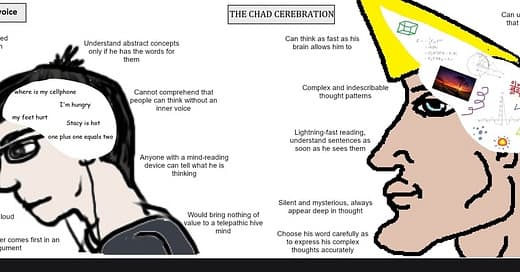Roon Introduces "Word Rotator" Concept, Expanding Digital Discourse on AI and Cognition

In a recent social media post, prominent online commentator and AI researcher known as "roon" (tszzl) has unveiled a new conceptual term, "word rotator," sparking discussion within digital intellectual circles. The announcement, made via a tweet from user davidad on August 28, 2025, stated, "> roon finally invented a word rotator," to which roon himself replied, "yeah that's how i see it too. like the model is flexing its technical skill, rotating its abstractions as much as it can. which is slightly different from the task of 'good writing'."
This new term builds upon roon's widely popularized "wordcel" and "shape rotator" dichotomy, which emerged in late 2021. The "wordcel" archetype typically describes individuals with high verbal intelligence who excel in language and abstract philosophical thought but may struggle with practical, real-world application or technical reasoning. Conversely, "shape rotators" are characterized by strong visuospatial and mathematical abilities, demonstrating proficiency in abstract problem-solving and technical fields like engineering and coding, often with less emphasis on verbal articulation.
The initial "wordcel" concept was notably coined by roon in an online discourse battle, intended as a critical label for those whose verbal abstractions become detached from tangible reality. The "shape rotator" term, referencing cognitive tests involving mental rotation of 3D objects, gained traction as its perceived opposite, representing a more grounded, problem-solving mindset. This framework has since become a significant meme, influencing discussions across tech, finance, and online culture.
The introduction of "word rotator" appears to be a commentary on the evolving capabilities of artificial intelligence, particularly large language models. Roon's explanation suggests that a "word rotator" is not a human archetype but rather a characteristic exhibited by AI models that can manipulate and "rotate" complex abstractions and technical concepts within text. This ability is presented as distinct from traditional "good writing," implying a focus on structural and conceptual coherence over stylistic or human-centric narrative.
This development reflects a growing interest in defining and categorizing the unique cognitive outputs of advanced AI. As AI models become increasingly sophisticated in generating human-like text, understanding the nuances of their "thinking" and expression becomes crucial. The "word rotator" concept offers a new lens through which to analyze AI's capacity for technical and abstract verbal manipulation, potentially influencing how human and artificial intelligence are perceived and compared in the ongoing digital discourse.